Thoracolumbar Scoliosis: Symptoms, Causes, and Treatment
Thoracolumbar scoliosis is a condition characterized by an abnormal curvature of the spine that affects the thoracic (mid-back) and lumbar (lower back) regions.
Understanding the symptoms, causes, and treatment options is crucial for managing this condition effectively.
At Pinnacle Orthocentre Hospital, we specialize in providing comprehensive care for patients with thoracolumbar scoliosis, ensuring they receive the best possible treatment and support.
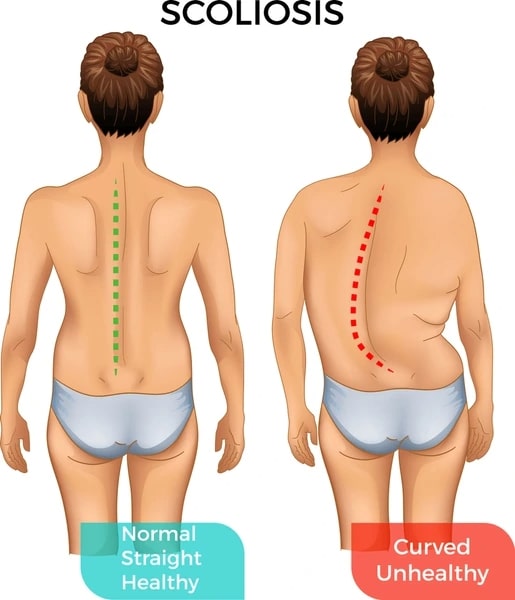
What is Thoracolumbar Scoliosis?
Thoracolumbar scoliosis is a type of scoliosis where the spinal curve extends through both the thoracic and lumbar regions.
Unlike other forms of scoliosis that may be confined to one part of the spine, thoracolumbar scoliosis affects a larger section, often leading to more noticeable symptoms and a more significant impact on the patient’s overall posture and movement.
Early diagnosis and intervention are key to preventing further complications and improving quality of life.
Thoracolumbar Scoliosis Symptoms
Common Symptoms
- Visible Curvature of the Spine: One of the most noticeable signs is an abnormal curve in the spine, often seen as an S or C shape.
- Uneven Shoulders or Hips: Patients may exhibit asymmetry in their shoulder or hip levels.
- Prominent Ribs on One Side: The ribs may protrude more on one side due to the spinal curvature.
Advanced Symptoms
- Thoracolumbar Scoliosis Pain: As the condition progresses, patients often experience chronic back pain that can affect daily activities.
- Reduced Range of Motion: The abnormal curvature can limit the spine’s flexibility, making movements like bending or twisting difficult.
- Difficulty Breathing: In severe cases, the curvature can compress the lungs, leading to respiratory issues.
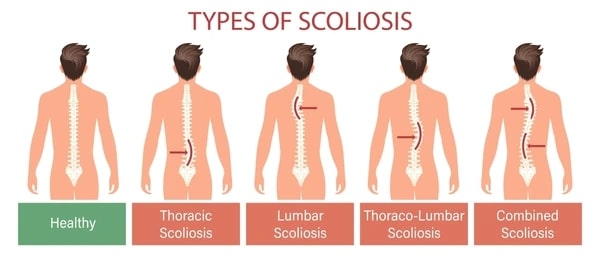
Thoracolumbar Scoliosis Side Effects
The side effects of thoracolumbar scoliosis extend beyond the obvious physical symptoms. They can significantly impact a person’s overall well-being:
- Impact on Physical Health: Chronic pain, reduced mobility, and potential complications with the heart and lungs.
- Emotional and Psychological Effects: Living with a visible deformity can lead to low self-esteem, anxiety, and depression.
- Long-term Complications: If left untreated, thoracolumbar scoliosis can lead to severe deformities, increased pain, and further deterioration of spinal health.
Thoracolumbar Scoliosis Causes
Idiopathic
- Most Common Cause: The majority of thoracolumbar scoliosis cases are idiopathic, meaning they arise without a known cause.
- Unknown Origin: Despite extensive research, the exact cause of idiopathic scoliosis remains unidentified.
Congenital
- Present at Birth: Some children are born with scoliosis due to abnormal vertebral development.
- Abnormal Vertebral Formation: These structural anomalies lead to a curved spine as the child grows.
Neuromuscular
- Associated Conditions: Disorders such as cerebral palsy or muscular dystrophy can contribute to the development of scoliosis.
- Muscle Imbalance: The uneven pull on the spine from weakened or paralyzed muscles causes the curvature.
Degenerative
- Age-related Changes: Older adults may develop scoliosis due to the wear and tear on the spine over time.
- Osteoporosis or Spinal Degeneration: These conditions weaken the spine, making it more susceptible to curvature.
Thoracolumbar Scoliosis Pain
Pain is a common and often debilitating symptom of thoracolumbar scoliosis. It can manifest in several ways:
- Localized Back Pain: Persistent discomfort in the middle or lower back.
- Radiating Pain to Legs or Arms: Nerve compression can cause pain to radiate from the spine to other parts of the body.
- Impact on Daily Activities: Chronic pain can significantly reduce the ability to perform everyday tasks, affecting the quality of life.
Thoracolumbar Scoliosis Treatment in Thane
At Pinnacle Orthocentre Hospital, we offer a range of treatment options tailored to the needs of our patients:
Non-Surgical Treatments
- Bracing: Used primarily for children and adolescents, braces can help prevent the progression of the spinal curve.
- Physical Therapy: Customized therapy programs to improve strength, flexibility, and posture.
- Exercises for Thoracolumbar Scoliosis: Specific exercises designed to strengthen the muscles supporting the spine.
Surgical Treatments
- Indications for Surgery: Surgery is considered when non-surgical methods fail to halt the progression or when the curve is severe.
- Types of Surgical Procedures: These may include spinal fusion, where the vertebrae are fused to correct the curvature and stabilize the spine.
- Role of a Spine Surgeon in Thane: Our expert spine surgeons in Thane are skilled in the latest surgical techniques, ensuring the best outcomes for our patients.
Exercises for Thoracolumbar Scoliosis
Physical therapy and exercises play a vital role in managing thoracolumbar scoliosis:
Specific Exercises
- Stretching Exercises: Helps maintain flexibility and reduce muscle tension.
- Strengthening Exercises: Focus on building core and back muscle strength to support the spine.
- Balance and Posture Improvement Exercises: Enhance overall posture and body mechanics.
Guidelines for Safe Exercise Routines
- Consistency: Regular exercise is key to managing symptoms.
- Supervision: Exercises should be performed under the guidance of a trained physical therapist.
- Customization: Programs should be tailored to the individual’s specific needs and abilities.
Choosing the Right Spine Surgeon in Thane
Selecting a qualified spine surgeon is crucial for the successful treatment of thoracolumbar scoliosis:
Criteria for Selecting a Surgeon: Look for experience, expertise in scoliosis treatment, and patient reviews.
Pinnacle Orthocentre Hospital’s Team: Our team includes highly skilled and experienced spine surgeons who are dedicated to providing top-notch care.
Patient Testimonials and Success Stories: Real-life examples of how our treatments have improved the lives of patients with thoracolumbar scoliosis.
Conclusions
Pinnacle Orthocentre Hospital is here to guide you on your journey towards optimal spinal health. If you suspect you might have thoracolumbar scoliosis, don’t hesitate to schedule an appointment with our team of experts in Thane.
Early diagnosis and proper treatment can significantly improve your quality of life and prevent the progression of the curvature.


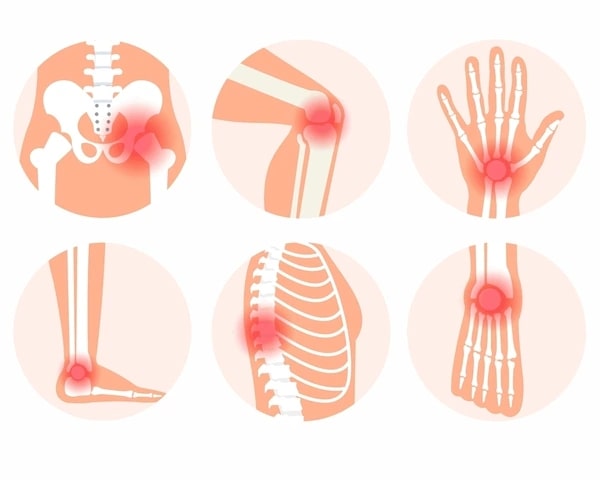
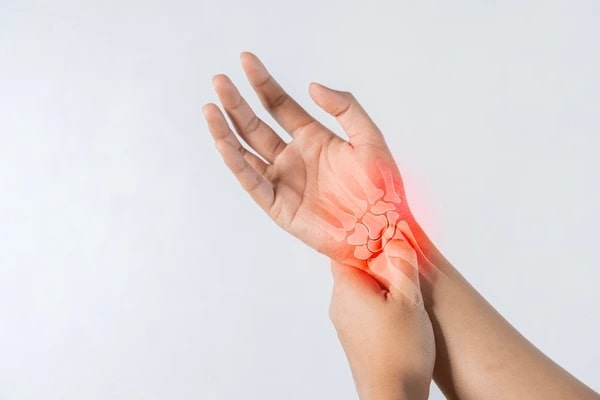
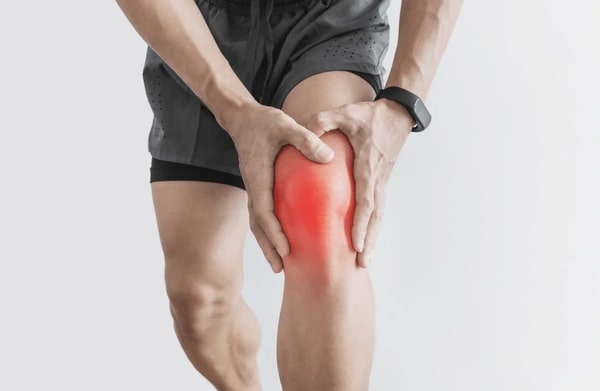
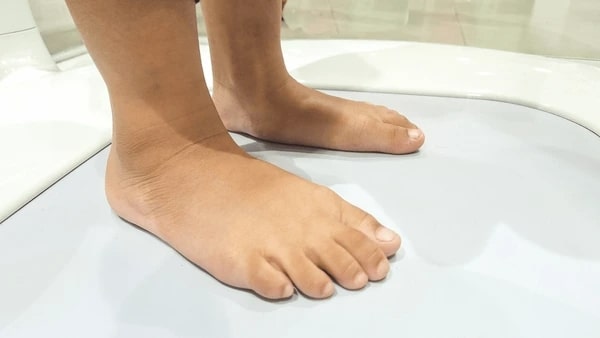
0 Comments